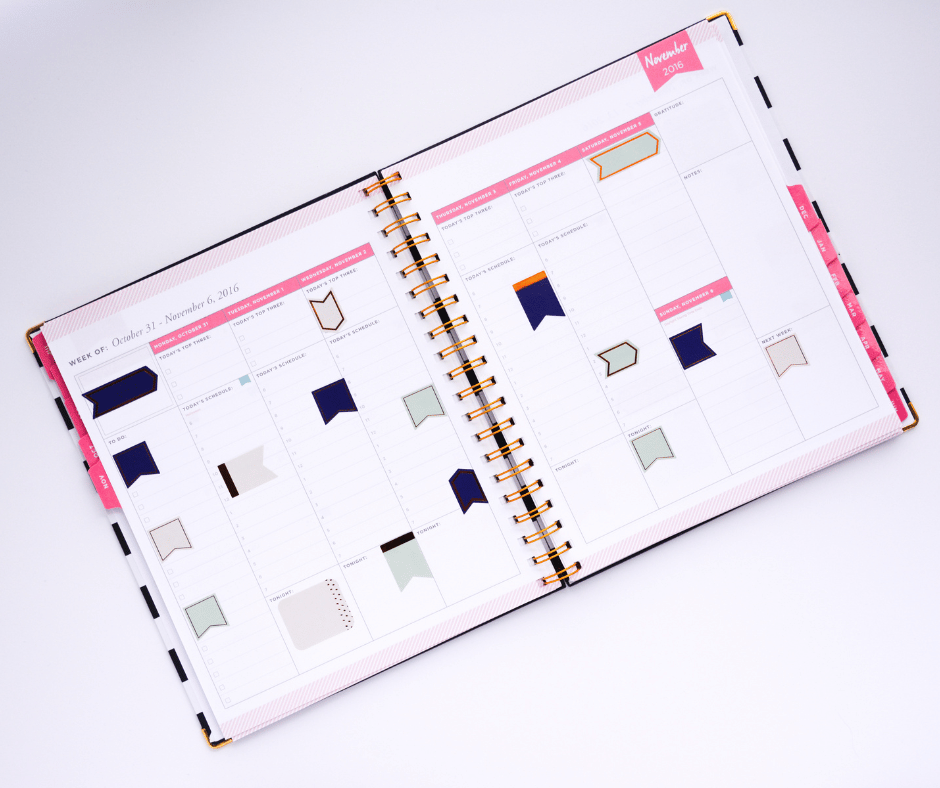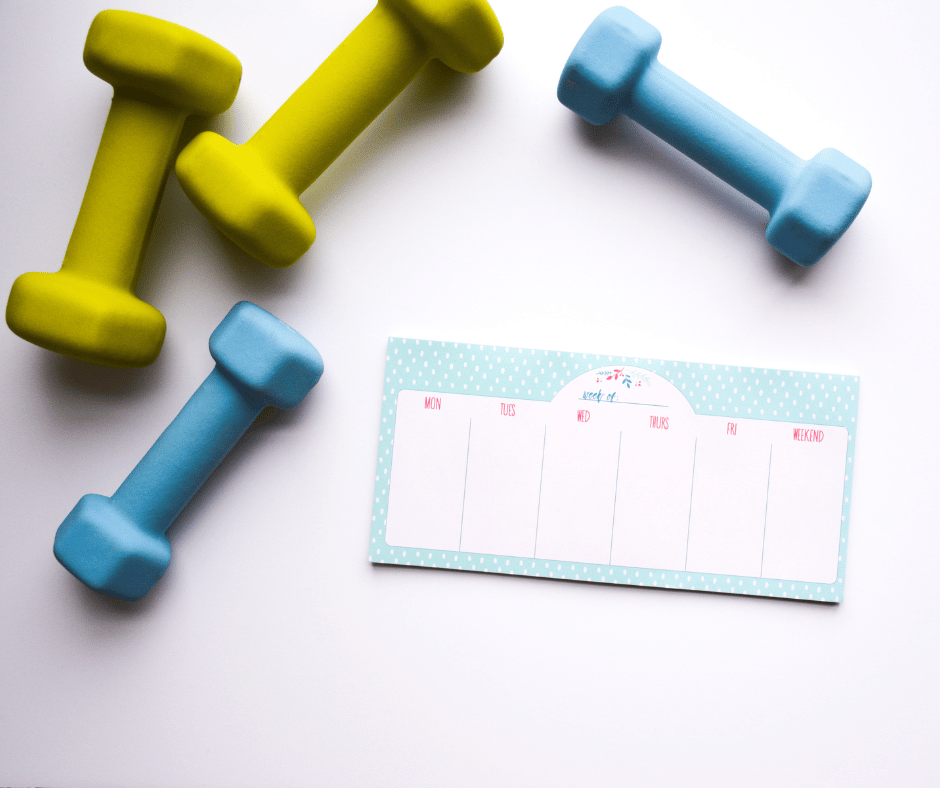The Ultimate Guide to Staying Organized in College
Mastering the 5 Executive Function Skills Every Student Needs
At Simplified, we know that staying organized in college isn’t just about having a clean desk or a color-coded planner. Whether you’re neurodivergent, have ADHD, or are just feeling overwhelmed by everything college throws at you, strong executive functioning skills are key to managing it all.
We work with students, professionals, and adults of all kids - from highly organized perfectionists to those who’ve never used a planner before. Many of our clients are navigating life with ADHD or other executive function challenges, while others are simply juggling full schedules and high expectations. Either way, our team is well-versed in buildling systems that support the way you naturally think, plan, and live.
Alongside our traditional organizing services, we also offer productivity coaching to help students and young adults stay accountable, plan ahead, and move through day-to-day roadblocks with confidence. Whether you need help keeping up with coursework, setting up a functional dorm room, or building out a weekly structure that works for you, we’re here to support you.
This guide breaks down five key executive functioning skills - Planning, Prioritizing, Time Management, Working Memory, and Emotional Regulation - with strategies that benefit all learners, but especially those managing ADHD or other neurodivergent traits.
Skill 1 - Planning: Get Ahead of the Overwhelm
One of the best ways to reduce academic stress is to take a step back and see the big picture. Planning is about taking control of your time before it runs away from you.
Create a Master Syllabus
During the first week of class, collect all your syllabi and consolidate due dates into one master spreadsheet. Color-code by course so you can spot deadlines at a glance. This visual roadmap helps avoid last minute panic and supports both ADHD and neurotypical brains in reducing overwhelm.Use a Digital + Physical Planning System
Many students benefit from both formats. A digital calendar (like Google Calendar or Outlook) keeps your schedule synced and searchable, while a paper planner or dry-erase board can give you an easy visual cue to remind you of the day’s plans and goals. A dual system like this supports memory and flexibility - which are key for executive function. However, if you find that managing two formats feels overwhelming, choose whichever one you’re more likely to have with you at all times- and stick with it.Time Block Your Week
Assign time for every important activity: class, studying, sleep, meals, even breaks. Treat study blocks like actual appointments. Time blocking is especially helpful for students with ADHD, who often find it hard to stay focused or get started when their schedule feels to o open or unstructured.Create a Weekly Planning Ritual
Choose one day - Sunday is popular - to look ahead at your week. Sit down with your planner and master syllabus to ask: “When am I going to do the work?” This one habit builds consistency and reduces anxiety.Incorporate a Task Manager You’ll Actually Use
Whether you loves apps like Notion, Todoist, or Trello - or prefer paper and pencil - the right tool is one you’ll use daily. For students with ADHD, visual or gamified to-do lists can make a big difference in follow-through.
Skill 2 - Prioritizing: Focus on What Matters
There’s always more to do that you have time for. The secret isn’t doing everything - it’s doing the right things first.
Pick 3 Daily Priorities
Every night, jot down the tree most important things to get done the next day. This simple habit adds structure and cuts down on decision fatigue.Use the 2-Minute Rule
If a task takes less than two minutes, do it immediately. Uploading a file, emailing a professor, printing an assignment - done is better than perfect.Attend Office Hours (Even if You’re Doing Fine)
Don’t wait for a crisis. Visiting professors early builds trust and confidence - and gives you an edge when you need help down the line.Expect the Unexpected
College life is unpredictable. ADHD students and neurotypical students alike benefit from building in buffer time and learning to adapt without spiraling when things change suddenly.
Skill 3 - Time Management: Make the Most of Your Minutes
You don’t need more hours in the day - you need a better plan for how you use them.
Use Alarms and Reminders
Your phone is your second brain. Set recurring alarms for when it’s time to head to class, to remember to drink water, for study sessions, and to ensure you remember those weekly planning and reset routines.Set up a Drop Zone
Choose one spot near your door to keep essentials: keys, wallet, student ID, charger. This simple system prevents overwhelm when you’re rushing out the door.Color Code Your Classes
Assign each course a color and use it consistently across notebooks, folders, planners, and Google Drive. Visual cues help all students mentally switch gears faster.Check Emails & Portals Once a Day
Avoid falling behind by setting aside 10 minutes daily to check your student email and course portals. This habit prevents surprises and missed deadlines.Declutter Weekly
Take 15 minutes once a week to tidy up your workspace, backpack, and digital files. A clear environment supports clearer thinking and can reduce feelings of overwhelm. Try habit stacking by pairing your weekly decluttering session with another routine - like your Sunday planning ritual. For example, tidy up first, then move straight into your Weekly Planning ritual. It’s a simple way to build consistency, and planning is always easier with a clear space (and head).
Skill 4 - Working Memory: Don’t Rely on Your Brain to Remember Everything
Your brain isn’t meant to hold everything at once - it’s not a storage system. The more you get things out of your head and onto paper (or into a digital tool), the more mental space and energy you’ll have to focus and actually get things done.
Organize Your Digital Files
Create cloud-based folders for each course. Label files clearly. Back up regularly. An organized desktop saves time and reduces stress.Use Your Task Manager Consistently
Using a task manager consistently helps build better habits and decision making. Plus, when plans shift (because they always do), a task manager makes it easy to reprioritize and adjust without loosing track of what matters. You’ll always know what’s next, what’s urgent, and what can wait.Rely on Visual Tools
Flashcards, whiteboards, sticky notes, and visual routines help reinforce information and support both working memory and processing speed.Revisit Your Master Syllabus Weekly
Refresh your memory by reviewing your syllabus spreadsheet every Sunday during your Weekly Planning ritual. Repetition builds retention.
Skill 5 - Emotion Regulation: Keep it Together When Things Get Tough
Stress is inevitable - but with the right tools, you can manage your response.
Stop Multitasking
The Pomodoro Technique (25 minutes work, 5 minute break) can increase focus and reduce burnout. Perfect for overwhelmed brains, and it gives you a natural stopping point to shift from one task to the next, if needed.Build in Accountability
Whether it’s a roommate, tutor, coach, or group chat - being accountable to someone else improves consistency and motivation. Have something big you need to do Tuesday night? Tell someone about it - and ask them to check in with you about it afterwards.Declutter Again
Yes, again. Physical clutter increases emotional stress. If you’re feeling particularly overwhelmed, a five-minute reset can go a long way.Design Morning and Nighttime Routines
Routines reduce the mental load. Write down your morning and bedtime checklists, or use sticky notes. For ADHD students, having it in writing means no more forgetting what worked so well yesterday.Prep the Night Before
Choose your outfit, prep your bag, and look over your schedule before bed. That small act can completely shift your mood in the morning.Don’t Forget to Eat
We’ve all been hangry - and it’s not great for focus, mood, or productivity. Keeping your blood sugar stable helps you think clearly and stay emotionally steady. Stash a few grab-and-go snacks in your backpack. A little prep goes a long way towards avoiding crashes later.
You Don’t Have to Be Perfect - Just Prepared
Here’s the deal: you’re not supposed to have it all figured out. College success isn’t about being the most organized - it’s about building habits, asking for help when you need it, and creating systems that make your life easier.
Start small. Choose one skill - like time blocking or daily prioritizing - and try it this week. From there, build momentum You’ve got this!
Need help creating your own personalized productivity systems and routines? We specialize in helping adults and teens (especially those with ADHD or executive function challenges) set up systems that truly work. Whether you want a one-time strategy session or weekly coaching for accountability and planning, we’d love to support you. Schedule a complimentary 15-minute introductory call with one of our productivity coaches today to learn more.
Our expert Productivity Consultants can go by many names - whether you refer to them as efficiency consultants, time management coaches, and productivity coaches, or ADHD coaches - they have the expertise to help you tackle your to do list and goals with confidence.
If you liked this post, check out our bonus reads also related to productivity:
Hi there! I’m Kristen, and I’m a Pittsburgh professional organizer and owner of Simplified Professional Organizing. My team and I serve Pittsburgh, PA and absolutely love helping people simplify their homes, businesses, and day-to-day lives with our professional organizing, productivity consulting, and moving services. No matter where you’re at in your organizing journey, we’re here to help.
Click HERE to schedule a complimentary consultation to talk about how we can help you eliminate the overwhelm and reclaim space in life for what truly matters most!
What expert tips and exclusive resources delivered to your inbox?






